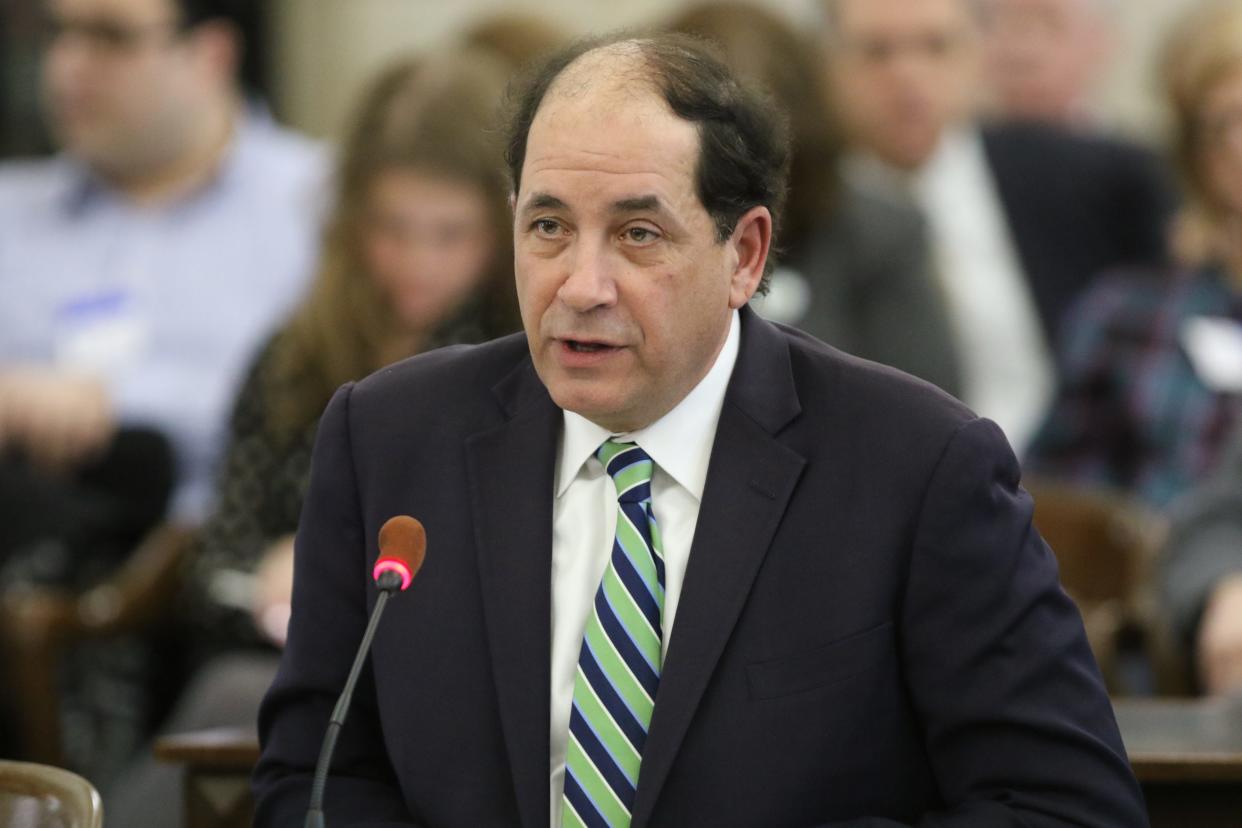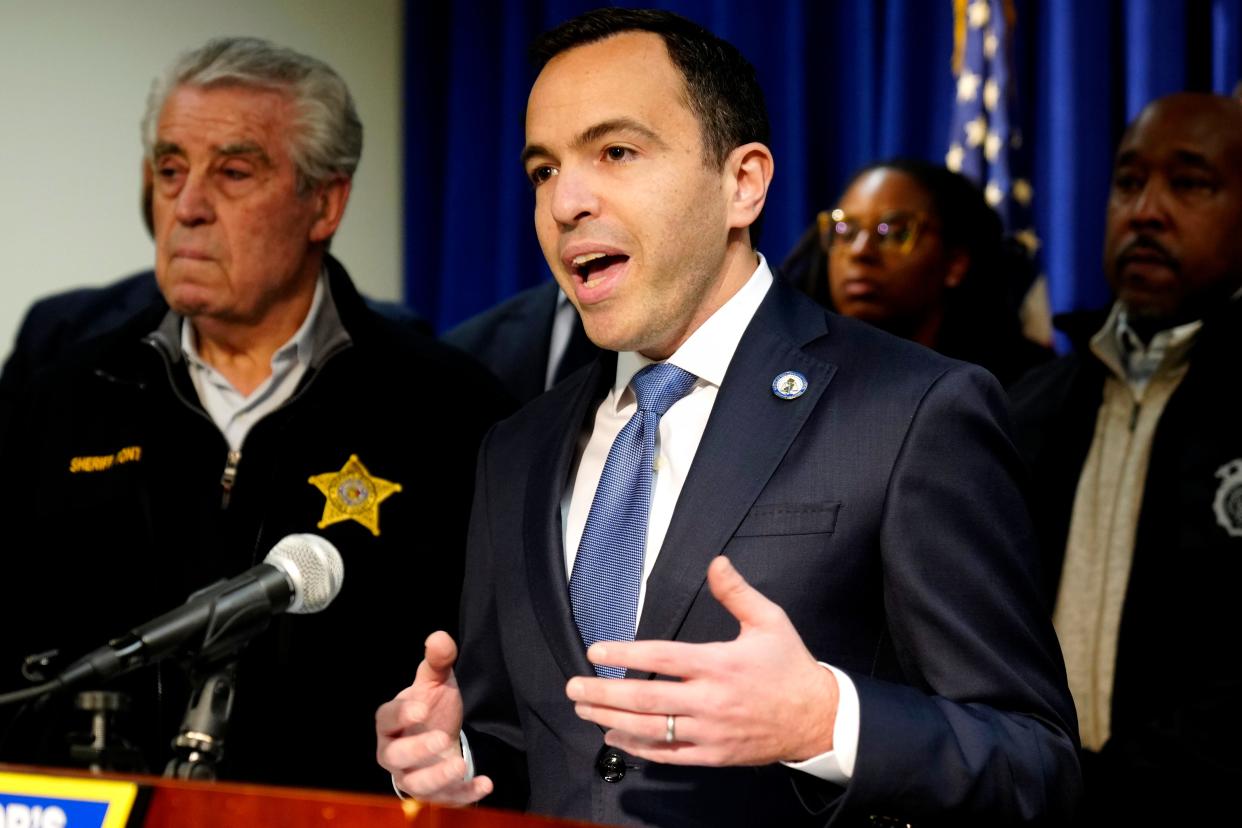Where is progressive Phil Murphy on smoking in NJ casinos? In lame duck territory | Stile
Four years ago, as the state started climbing out of the COVID-19 pandemic, Gov. Phil Murphy sounded very much like an ardent supporter of smoke-free Atlantic City casinos.
“I have said this unequivocally,” he told News12 New Jersey. “If legislation comes to my desk that would ban smoking in casinos, you should assume that I will sign it.”
But the once-emphatic governor has since wobbled in his commitment, as the opening rounds of a new lawsuit have made abundantly clear in recent days.
The lame-duck governor, with nothing to lose and a chance to use his power and pulpit to stamp his legacy as a champion of public health, is playing it safe and joining forces with old-guard protectionist interests too frightened to take the plunge into the smoke-free future.

Smokers remain critical to their business model and survival — even if toxic secondhand smoke drifting through the casino floor imperils the survival of dealers and other workers.
Murphy, the progressive who apparently sought to keep workers from having to ply their trade amid that daily, toxic plume of smoke, is now sympathetic to the casino executives' familiar, overstated fears of economic collapse if smoking is banned.
The governor has now signaled support for a compromise that would allow smoking to continue in some capacity.
“First he says that he would sign a bill that gets to his desk. But he didn't say which bill," said state Sen. Joe Vitale, D-Middlesex, who has led a long-term Sisyphean battle to close a loophole that has allowed smoking to continue in the casinos since the state banned indoor smoking at public places in 2006.

“He then qualifies it by saying, 'Well, but we should also consider the economic impact of the proposed law, right?' So you can't, in my view, you can't have it both ways," Vitale said in frustration. “You gotta take a position.”
Murphy's administration has taken a position, as was made clear Monday night with the attorney general’s response to a workers' lawsuit seeking to close the loophole, which allows smoking on 25% of the casino gaming floors.
Who brought the new lawsuit to upend smoking in Atlantic City casinos?
The lawsuit, brought by Casino Employees Against Smoking’s Effects, or CEASE, a grassroots organization of some 3,000 casino workers and the United Auto Workers' Region 9, which represents 3,000 employees at three casinos, argues that the exemption violates equal protection and right-to-safety guarantees in the state constitution.
Jilted by a Legislature that seemed poised to end the special exemption from the smoking ban in January, only to watch the support melt away amid the casino industry pushback, the groups say they should be afforded the same health protections that any waiter or bartender or cook or maid can enjoy anywhere outside of Atlantic City. They named Murphy as a defendant in the suit.
“More than 18 years, the state has acknowledged that smoking is a cause of disease and death and that it is not alleviated by non-smoking areas," the suit said. “Yet, although it has banned smoking outdoors in parks and beaches, without explanation, the law exempts casino workers from its protections.”
But Attorney General Matthew Platkin, obligated to defend the administration, argued that CEASE/UAW's constitutional claims are groundless. Platkin said the special provision for Atlantic City was largely consistent with the special status that the casino mecca has been granted since it was legalized by constitutional amendment in the 1970s.
Platkin also argued that to remove that protection would upend an ecosystem of jobs and industries that depend on the fragile casino industry. It was an echo, of sorts, of the casino industry’s own warning that smokers would flock to nearby Pennsylvania casinos if they could no longer puff while gambling in Atlantic City, putting thousands of jobs at risk.
“Granting such relief would disrupt the well-settled status quo; likely affect the businesses and livelihoods of third parties, including the casinos, their management, and the many casino workers who disagree with Plaintiffs’ position; and potentially bring about economic consequences that the Legislature sought to avoid when it enacted the Smoke-Free Air Act," Platkin’s reply brief said.
Yet disrupting the well-settled status quo is precisely the point. It is exactly why CEASE and the UAW went to court. They argue that the casino executives are like Rip Van Winkle, waking up 20 years later only to discover that the world has vastly changed. The industry that once had Donald Trump as its bombastic hero before his properties slid into bankruptcy is still waging the same fear-tactic complaints.
The landscape has changed — 20 states now ban smoking in casinos, including New York and Delaware. The largest Philadelphia-area casino, Parx, continues to thrive after voluntarily going smoke-free several years ago. And a similar drive to ban smoking in Pennsylvania casinos is also underway.
Charlie Stile: Will this lawsuit finally put an end to cigarette smoke in Atlantic City casinos?
A compromise appears unlikely
For the time being, with the Legislature in gridlock and unlikely to muster a compromise — one that would allow for smoking in a cordoned-off room, staffed by volunteers — the powerful casino industry and its allies in labor are pulling out all the stops. They are also finding an ally in Murphy and his attorney general.
“The fact that our elected officials are willing to dismiss a lawsuit aimed at protecting us from the dangers of smoking indoors speaks volumes about where their priorities lie — and it's certainly not with the hardworking individuals who keep these casinos running,” Lamont White, co-founder of CEASE, said in a statement.

It’s worth noting that it was nearly a month ago that Platkin stunned the political establishment — or upended the status quo — by refusing to defend the laws propping up the county line ballot design that were eventually struck down in federal court. That move infuriated Murphy and his wife, first lady Tammy Murphy, who were counting on the old-school ballot format to carry her to victory in the Democratic U.S. Senate primary.
Platkin argued that those laws were indefensible and unconstitutional. Some had hoped he would assert his independence and make a similar argument against the smoking exemption. Not this time. Instead, he provided a vigorous defense of the exemption. And in doing so, he preserved — for the moment, at least — a status quo that is doing its best to remain intact.
For now, Vitale intends to soldier on amid this latest challenge from an administration that once seemed to be favoring change.
“The state has played a major role in regulating Atlantic City, and there's nothing special about … giving them [casinos] dispensation to poison the employees and the patrons," Vitale said.
Charlie Stile is a veteran New Jersey political columnist. For unlimited access to his unique insights into New Jersey’s political power structure and his powerful watchdog work, please subscribe or activate your digital account today.
Email: stile@northjersey.com
This article originally appeared on NorthJersey.com: Atlantic City casino smoking ban: Phil Murphy a lame duck?
